Archive for May, 2010

Close battle underway for top of new go-kart league
 CNS): Organisers at the new go-kart track off Sparky’s Drive in George Town have announced the start of the sport’s new corporate league. The first two rounds of races have already been held in a competition that will bring together 120 people representing 20 local companies over an 8 week season. With he dust had settled on round two a close four way fight is already underway for the top spot. Premier Wines, LRPF Walkers, Maples Skidmarks and Team Parker’s are all only a point apart from each other. A second grouping of B Bandits B, Team Valvoline and Harney’s sits just behind the leaders. (Left Jenny Deacon)
CNS): Organisers at the new go-kart track off Sparky’s Drive in George Town have announced the start of the sport’s new corporate league. The first two rounds of races have already been held in a competition that will bring together 120 people representing 20 local companies over an 8 week season. With he dust had settled on round two a close four way fight is already underway for the top spot. Premier Wines, LRPF Walkers, Maples Skidmarks and Team Parker’s are all only a point apart from each other. A second grouping of B Bandits B, Team Valvoline and Harney’s sits just behind the leaders. (Left Jenny Deacon)
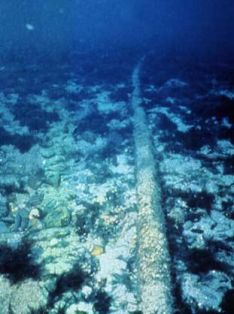
C&W builds new underwater Caribbean cable
 (CNS): Regional telecommunications company Cable & Wireless is promising customers great access and more high-speed bandwidth as a result of a new submarine cable which is now under construction in the Caribbean and should be completed early next year. The firm said the cable will more than double its carrier capacity in the region. The “East-West” cable will link Jamaica and the Cayman Islands in the west of the Caribbean, to the British Virgin Islands (Tortola) in the east. Cable & Wireless Communications’ existing cable system links with 23 Caribbean countries, the East-West cable will complete a Caribbean ‘network ring’, improving resilience and access for carrier customers, the firm said.
(CNS): Regional telecommunications company Cable & Wireless is promising customers great access and more high-speed bandwidth as a result of a new submarine cable which is now under construction in the Caribbean and should be completed early next year. The firm said the cable will more than double its carrier capacity in the region. The “East-West” cable will link Jamaica and the Cayman Islands in the west of the Caribbean, to the British Virgin Islands (Tortola) in the east. Cable & Wireless Communications’ existing cable system links with 23 Caribbean countries, the East-West cable will complete a Caribbean ‘network ring’, improving resilience and access for carrier customers, the firm said.

One arrested for DUI following serious road smash
 (CNS): Police have now confirmed that two people are still in hospital following a late night road crash on Saturday 22 May. On Monday morning the RCIPS released a statement stating that at around 11.50 pm on Saturday night a black Chrysler PT Cruiser and a silver Toyota Windom collided on Linford Pierson Highway close to Silver oaks. As a result of the crash the male driver of the Chrysler and the female driver of the Toyota were taken to the Cayman Islands Hospital. A 26-year-old man has been arrested on suspicion of DUI and dangerous driving. He has been released on police bail.
(CNS): Police have now confirmed that two people are still in hospital following a late night road crash on Saturday 22 May. On Monday morning the RCIPS released a statement stating that at around 11.50 pm on Saturday night a black Chrysler PT Cruiser and a silver Toyota Windom collided on Linford Pierson Highway close to Silver oaks. As a result of the crash the male driver of the Chrysler and the female driver of the Toyota were taken to the Cayman Islands Hospital. A 26-year-old man has been arrested on suspicion of DUI and dangerous driving. He has been released on police bail.
Budget date still unclear
(CNS): The people of the Cayman Islands have to wait one more week on the content of what is probably one of the most anticipated budgets in the country’s history. The premier had promised to bring the 2010/11 budget before the end of this month and it is understood the goal is to deliver the national financial plan on Monday 31 May. However, the target date could still be disrupted, according to the governor, who says the new overseas territories minister will want to review the Cayman government’s three year plan and the size of this year’s borrowing requirement. At this stage the plan is based on cuts in spending and no direct taxes, but with government revenue still falling there are no guarantees that the borrowing needs will be approved without new revenue measures being introduced.

UK Cops head home after helping round up suspects
 (CNS): A group of specialist British cops, seconded to the Royal Cayman Islands Police Service on a temporary basis, have gone back to the United Kingdom. The team of 14 officers from police services in the Midlands area of the UK have reportedly helped local officers to arrest and charge a number of suspects in the recent spate of gang related violence. The UK cops assisted in putting together the charges in four out of the five fatal shootings which have taken place so far this year. However, The RCIPS is still facing a number of unsolved fatal shootings from 2009 and beyond.
(CNS): A group of specialist British cops, seconded to the Royal Cayman Islands Police Service on a temporary basis, have gone back to the United Kingdom. The team of 14 officers from police services in the Midlands area of the UK have reportedly helped local officers to arrest and charge a number of suspects in the recent spate of gang related violence. The UK cops assisted in putting together the charges in four out of the five fatal shootings which have taken place so far this year. However, The RCIPS is still facing a number of unsolved fatal shootings from 2009 and beyond.
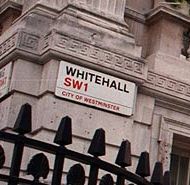
300,000 civil service jobs face axe in UK
 (Times Online): AT least 300,000 Whitehall and other public sector workers may lose their jobs as the coalition government sets to work cutting the £156 billion budget deficit. As George Osborne, the chancellor, prepares to unveil the first £6 billion of cuts tomorrow, the full scale of the job losses that will follow has begun to emerge.The initial savings to be announced will target such items as civil servants’ perks, which include taxis, flights and hotel accommodation.The package will also include a £513m cutin the budgets for quangos, with some being abolished altogether. While the firstwave of cuts will mainly target Whitehall waste, more severe reductions of up to 25% in some departmental budgets will follow in a comprehensive spending review in the autumn.
(Times Online): AT least 300,000 Whitehall and other public sector workers may lose their jobs as the coalition government sets to work cutting the £156 billion budget deficit. As George Osborne, the chancellor, prepares to unveil the first £6 billion of cuts tomorrow, the full scale of the job losses that will follow has begun to emerge.The initial savings to be announced will target such items as civil servants’ perks, which include taxis, flights and hotel accommodation.The package will also include a £513m cutin the budgets for quangos, with some being abolished altogether. While the firstwave of cuts will mainly target Whitehall waste, more severe reductions of up to 25% in some departmental budgets will follow in a comprehensive spending review in the autumn.
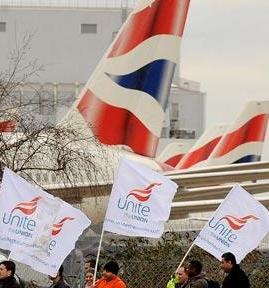
BA strike causes wide disruption
 (Financial Times): Thousands of British Airways passengers faced disruption to their travel plans on Monday after 1,200 cabin crew began a five-day srike. Talks to resolve the dispute over the weekend ended in acrimony with both the company and leaders of the Unite union blaming each other for the failure to come to a deal. As of early Monday, about 40 per cent of scheduled departures and 30 per cent of arrivals at Heathrow – Europe’s busiest airport – had been cancelled, the airline said. Flights from two other London airports, Gatwick and City, were not affected by the strike. The airline said it was able to operate more than 60 per cent of the long-haul programme and 50 per cent of short-haul flights. According to the BA web site flights this week from Grand Cayman to London have been cancelled.
(Financial Times): Thousands of British Airways passengers faced disruption to their travel plans on Monday after 1,200 cabin crew began a five-day srike. Talks to resolve the dispute over the weekend ended in acrimony with both the company and leaders of the Unite union blaming each other for the failure to come to a deal. As of early Monday, about 40 per cent of scheduled departures and 30 per cent of arrivals at Heathrow – Europe’s busiest airport – had been cancelled, the airline said. Flights from two other London airports, Gatwick and City, were not affected by the strike. The airline said it was able to operate more than 60 per cent of the long-haul programme and 50 per cent of short-haul flights. According to the BA web site flights this week from Grand Cayman to London have been cancelled.
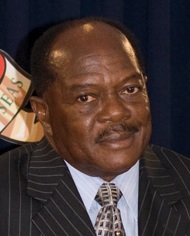
Decolonisation seminar examines nation building
 (CNS): The issue of nation building was a key part of the discussions at last week’s United Nations Seminar in Noumea, New Caledonia. During the three-day annual regional conference of the Special Committee on Decolonisation, committee chair Donatus Keith St. Aimee of Saint Lucia said it was an essential prerequisite to successful self-determination. He said economic and social development, as well as education about self-determination processes and options, should be in place before any decision on self-determination was taken, according to a release from the seminar. The Cayman Islands was represented at the gathering by local attorney Steve McField. (Photo by Dennie Warren Jr)
(CNS): The issue of nation building was a key part of the discussions at last week’s United Nations Seminar in Noumea, New Caledonia. During the three-day annual regional conference of the Special Committee on Decolonisation, committee chair Donatus Keith St. Aimee of Saint Lucia said it was an essential prerequisite to successful self-determination. He said economic and social development, as well as education about self-determination processes and options, should be in place before any decision on self-determination was taken, according to a release from the seminar. The Cayman Islands was represented at the gathering by local attorney Steve McField. (Photo by Dennie Warren Jr)
Amiee noted that a great deal of discussion on decolonisation focused on the political role of the administering power, which, while obviously important, should not be seen as the only facet of the process. Encouraging private sector actors in a territory to be good corporate citizens was also vital. “If they don’t reflect a sense of goodwill, it makes the job of the administering power and the local authorities much more difficult,” he said. “If we can encourage the private sector to become good corporate citizens, and if the population can see that resources are being used for their benefit, then this contributes to a sense of trust and nation-building.”
The chairman noted that all participants had made valuable contributions, with many of their suggestions laying down challenges of thinking and method for the Special Committee. “You have thrown down the challenges and we have given an undertaking to respond,” he added. The seminar’s conclusions and recommendations would be refined in light of the morning discussions for consideration at the Special Committee’s next substantive session in New York in June, he said.
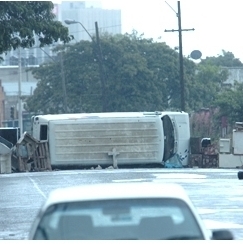
Golding declares emergency
 (CNS): Following attacks on three police stations and continued unrest in the country’s capital, Jamaican Prime Minister Bruce Golding declared a state of emergency in parts of Kingston on Sunday afternoon. Masked men torched a police station and traded gunfire with security forces in a barricaded area of West Kingston and St Andrew’s — areas known as the stronghold of Christopher "Dudus" Coke, the man whom Golding has now agreed to extradite to the United States. The BBC’s Nick Davis has reported that troops and police have come under fire and smoke is rising from the burning police station.
(CNS): Following attacks on three police stations and continued unrest in the country’s capital, Jamaican Prime Minister Bruce Golding declared a state of emergency in parts of Kingston on Sunday afternoon. Masked men torched a police station and traded gunfire with security forces in a barricaded area of West Kingston and St Andrew’s — areas known as the stronghold of Christopher "Dudus" Coke, the man whom Golding has now agreed to extradite to the United States. The BBC’s Nick Davis has reported that troops and police have come under fire and smoke is rising from the burning police station.
The US Justice Department claims Coke is one of the world’s most dangerous drug barons. He is accused of leading a gang called the Shower Posse and operating an international smuggling network. The gang has also been blamed for numerous murders in Jamaica and the US. Coke is said to have strong ties to the ruling Jamaica Labour Party and holds significant sway over the West Kingston area represented in Parliament by Golding, who stalled Coke’s extradition request for months with claims that the US indictment relied on illegal wiretap evidence.

Cayman’s Fiscal Destiny: Stuck in the Trenches?
A new arrival in Cayman might be forgiven for wondering if many of the key players here are stuck in the trenches of World War I. And are waiting for some deus ex machina (like the armoured tank) to rescue them from the stalemate. So we have private sector groups lobbing shells into the air shouting “no to any (more) taxes, cut the civil service, waste and unnecessary government services”.
The civil service association arouses itself and lobs back equally large shells proclaiming “we do a good job, we have contractual entitlements and just see what happens to all those needed services if there are cut backs”. Both sides take a short break, reload and start shooting again.
The political leadership understandably seems taken aback by the Luddite attitudes of both sides, and is unable to find the right key to unlock the impasse. And with no success at banging heads together in smokeless rooms to get an agreed and lasting compromise (and both sides have good and bad points in their arguments), the leadership has, albeit reluctantly, now had to pass the hard decisions to the UK in the hope that it all works out in the end.
This is very unfortunate as we lose control of the final outcome. Who knows what the UK’s decision will be; it is quite possible no-one will like it. And if there is no buy-in locally, it is unlikely to succeed. Cayman is a supposedly sophisticated place with a sensible Government and a dynamic private sector. So we do ourselves a disservice and it reflects poorly on all of us if we cannot resolve these financial issues locally and in a mature manner.
To move beyond the present position requires everyone who is currently shouting to stop and think. Politics is the art of the possible and the compromise. So we should take the time to decide carefully what infrastructure and services we want our Government to provide (and accept that we cannot demand those we are not willing to pay for) and whether the current model that Cayman uses to raise its revenue for these purposes is sufficient and sustainable in the long term. And then make changes decisively and move forward. So far, there has been remarkably little considered debate (there has been a lot of posturing), let alone any concrete moves towards a compromise solution. Reaching for outside experts and reports is helpful, but at the end of the day, the analyses and solutions should be in the Cayman context, rather than demanding the simplistic application of the perceived wisdom from elsewhere.
It is probably now too late to do much, if any, of this ahead of the impending budget and three year plan, but no-one should think that the problems are going away. The new budget and plan will surely present “best case” scenarios that, given the continuing global uncertainties and recent prior experience, are unlikely to be achieved on either the revenue or expenditure sides within the required timeframe. So we have probably only bought ourselves some breathing space, along with more debt. We should use the opportunity to do what needs to be done for the long term, and well before the next crisis arrives. If we do not, we will have simply kicked the can into the next muddier and possibly deeper trench.